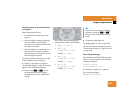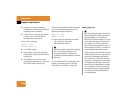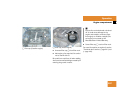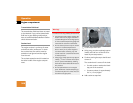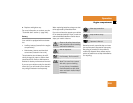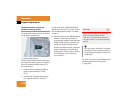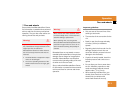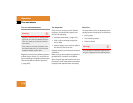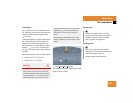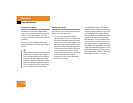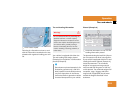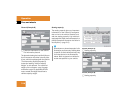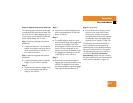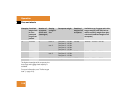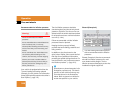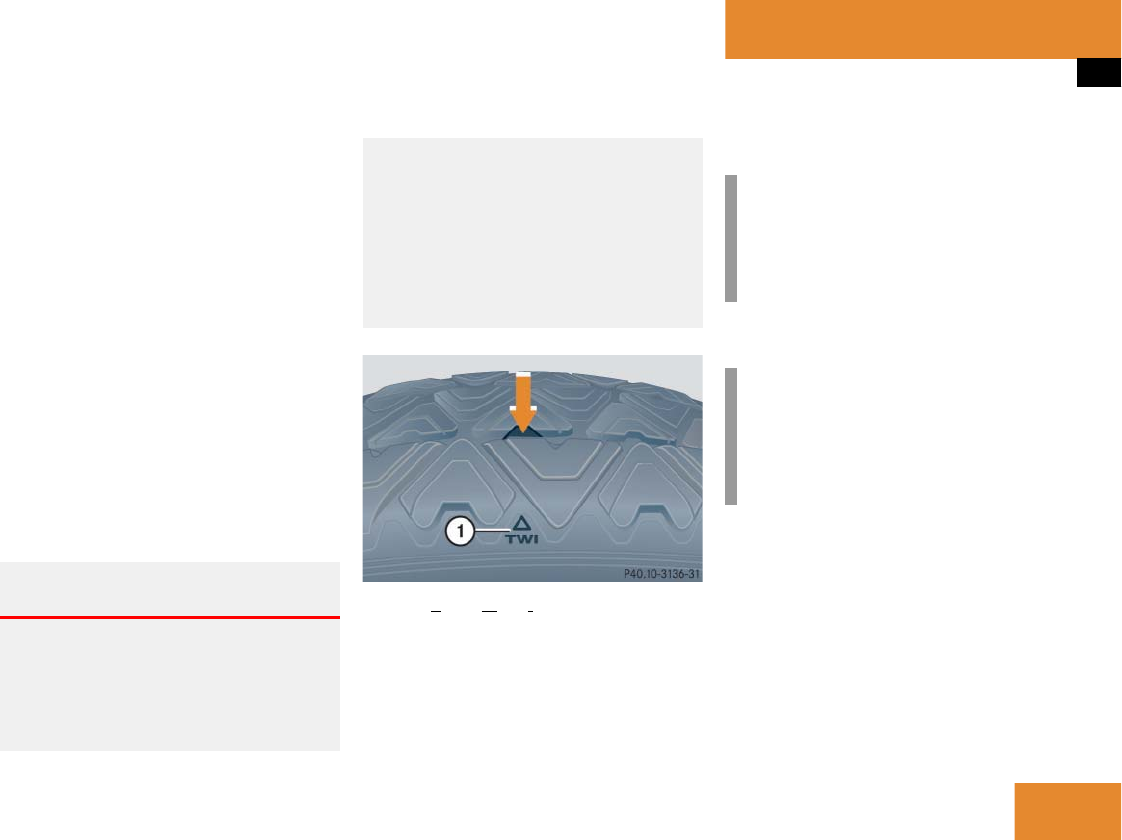
313
Operation
Tires and wheels
Tread depth
Do not allow your tires to wear down too
far. Adhesion properties on wet roads are
sharply reduced at tread depths under
1
⁄
8
in (3 mm).
Tread wear indicators (TWI) are required by
law. These indicators are located in six
places on the tread circumference and
become visible at a tread depth of approx-
imately
1
/
16
in (1.6 mm), at which point
the tire is considered worn and should be
replaced.
Recommended minimum tire tread depth:
ț Summer tires
1
/
8
in (3 mm)
ț Winter tires
1
/
6
in (4 mm)
1 TWI (T
read Wear Indicator)
The tread wear indicator appears as a solid
band across the tread.
Storing tires
Cleaning tires
Warning! G
Although the applicable federal motor safety
laws consider a tire to be worn when the
tread wear indicators (TWI) become visible
at approximately
1
/
16
in (1.6 mm), we rec-
ommend that you do not allow your tires
to wear down to that level. As tread depth
approaches
1
/
8
in (3 mm), the adhesion
properties on a wet road are sharply re-
duced.
Depending upon the weather and/or road
surface (conditions), the tire traction varies
widely.
!
Keep unmounted tires in a cool, dry
place with as little exposure to light as
possible. Protect tires from contact
with oil, grease and gasoline.
!
Never use a round nozzle to power
wash tires. The intense jet of water can
result in damage to the tire.
Always replace a damaged tire.



